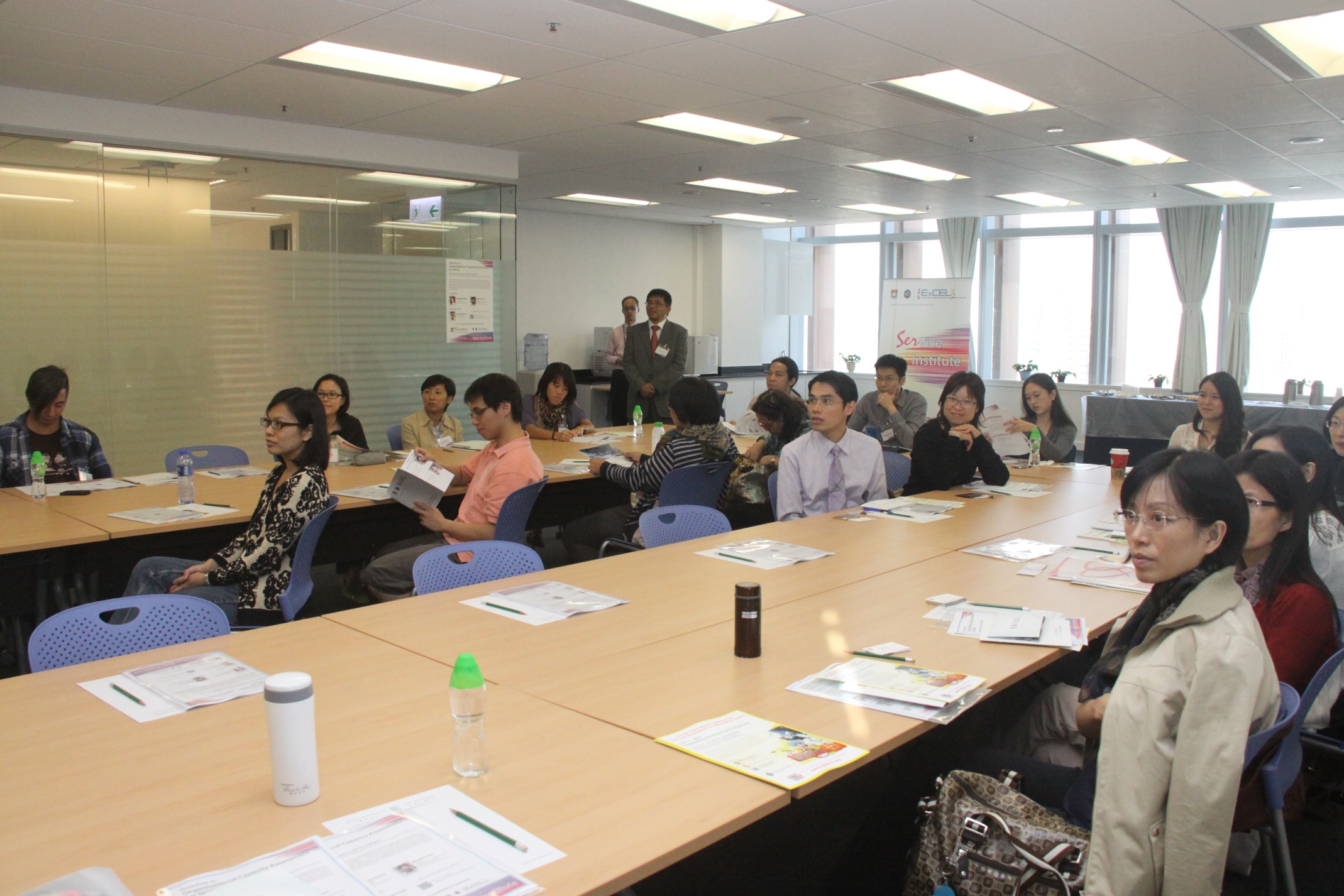 機構能力評估項目
機構能力評估項目
Introduction
 Organisational Capacity Assessment (OCA) is a systematic process to identify the current capacity of an organisation. Assessment results can indicate areas of strength and weakness, and allows organisations to step back and take stock of where they are in their development. From this, an organisation can then select capacity building activities appropriate to the desired improvements. Ultimately, the purpose for OCA is for capacity building, and the OCA process builds capacity itself. Therefore, OCA should be considered a journey of learning and discovery rather than a test or judgment.
Organisational Capacity Assessment (OCA) is a systematic process to identify the current capacity of an organisation. Assessment results can indicate areas of strength and weakness, and allows organisations to step back and take stock of where they are in their development. From this, an organisation can then select capacity building activities appropriate to the desired improvements. Ultimately, the purpose for OCA is for capacity building, and the OCA process builds capacity itself. Therefore, OCA should be considered a journey of learning and discovery rather than a test or judgment.
Project Team Members
The OCAP is a collaboration between ExCEL3 Project and the Department of Social Work and Social Administration at The University of Hong Kong. The OCAP team member included:
- Ms Michele Raphael, Project Manager, ExCEL3, The University of Hong Kong
- Ms Elsie Chien, Lecturer, Department of Social Work and Social Administration, The University of Hong Kong
- Dr Anna Choi, Assistant Professor, Department of Social Work and Social Administration, The University of Hong Kong
- Mr Wong Yun Chuen, Lecturer, Department of Social Work and Social Administration, The University of Hong Kong
About the project
Purpose of OCAP
- To work with NGOs in Hong Kong to increase their self-knowledge and help direct their capacity building efforts
- Results from the assessment could be used by NGOs to help future development
- Feedback from the NGOs will be used to revise and develop a localised OCA tool for NGOs in Hong Kong
Target NGOs
- 6 – 8 selected NGOs
- Priority given to small-medium sized social service NGOs in Hong Kong
- Demonstrate commitment to capacity building and to the process of OCA, including:
- Commitment from organisational leaders
- Cross functional participation
- Ready to take actions for improvement after the OCA process
- Willing to share information and have honest engagement during the process
- Willing to have on-going communication after the OCA process
Expected Deliverables for NGOs
Organisational capacity assessment data and recommendations report to each NGO
Timeline
The OCA project will run from January 2014 to June 2015. Interested NGOs can begin the process at any time from January 2014 to January 2015.
Organisational Capacity Assessment Workshop on November 7, 2013
On November 7, 2013, ExCEL3 organised an exclusive Workshop on Organisational Capacity Assessment for NGOs at the Social Sciences Function Room, 11/F, The Jockey Club Tower, Centennial Campus, The University of Hong Kong. The objective of the workshop was to increase NGOs understanding of Organisational Capacity Assessment and their tools, processes and use in building organisational capacity. The key message delivered was that organisational capacity assessment is the first step of organisational capacity building, and an integral part of remaining a healthy organisation. Registration for the workshop was enthusiastic and participants represented various local and international social service NGOs and foundations in Hong Kong.
After a group ice-breaking activity, an introduction to organisational capacity assessment (OCA) and capacity building was given by Ms Michele Raphael, Project Manager at ExCEL3. Topics included what is OCA, the importance of OCA, when should OCA be conducted, and the intrinsic link between OCA and capacity building. Afterwards, a practical guide to the tools and processes in OCA was presented by Ms Elsie Chien, Lecturer at Department of Social Work and Social Administration, who went through a number of different methods and tools for OCA, and highlighted their common features, capacity areas and approaches.
Next, the ExCEL3 Organisational Capacity Assessment Project (OCAP) was introduced, in which ExCEL3’s own OCA tool and process was explained. Mr Surinder Punjya, Chairman of Good Rock Foundation, also came to share Good Rock’s experience of participating in the ExCEL3 OCAP. Describing the entire process as “empowering”, “very positive”, “giving room for the organisation to reflect”, and an “opportunity to grow and ask some very difficult questions”, Mr Punjya cleared the misplaced fears some people may have towards the word “assessment” and described how Good Rock benefited from the process, and how they used the data, recommendations report and OCA tool to bring their organisation forwards.
Feedback from the workshop was very positive and participating NGOs were also given the opportunity to register for a free OCA to help their first step in organisational capacity building.
Details of the Workshop can be found here.
For further information or if you are interested in participating in OCAP, please contact Ms Michele Raphael at mcswong@hku.hk.
 主頁
主頁
 訂閱
訂閱
 聯絡
聯絡
 搜尋
搜尋
